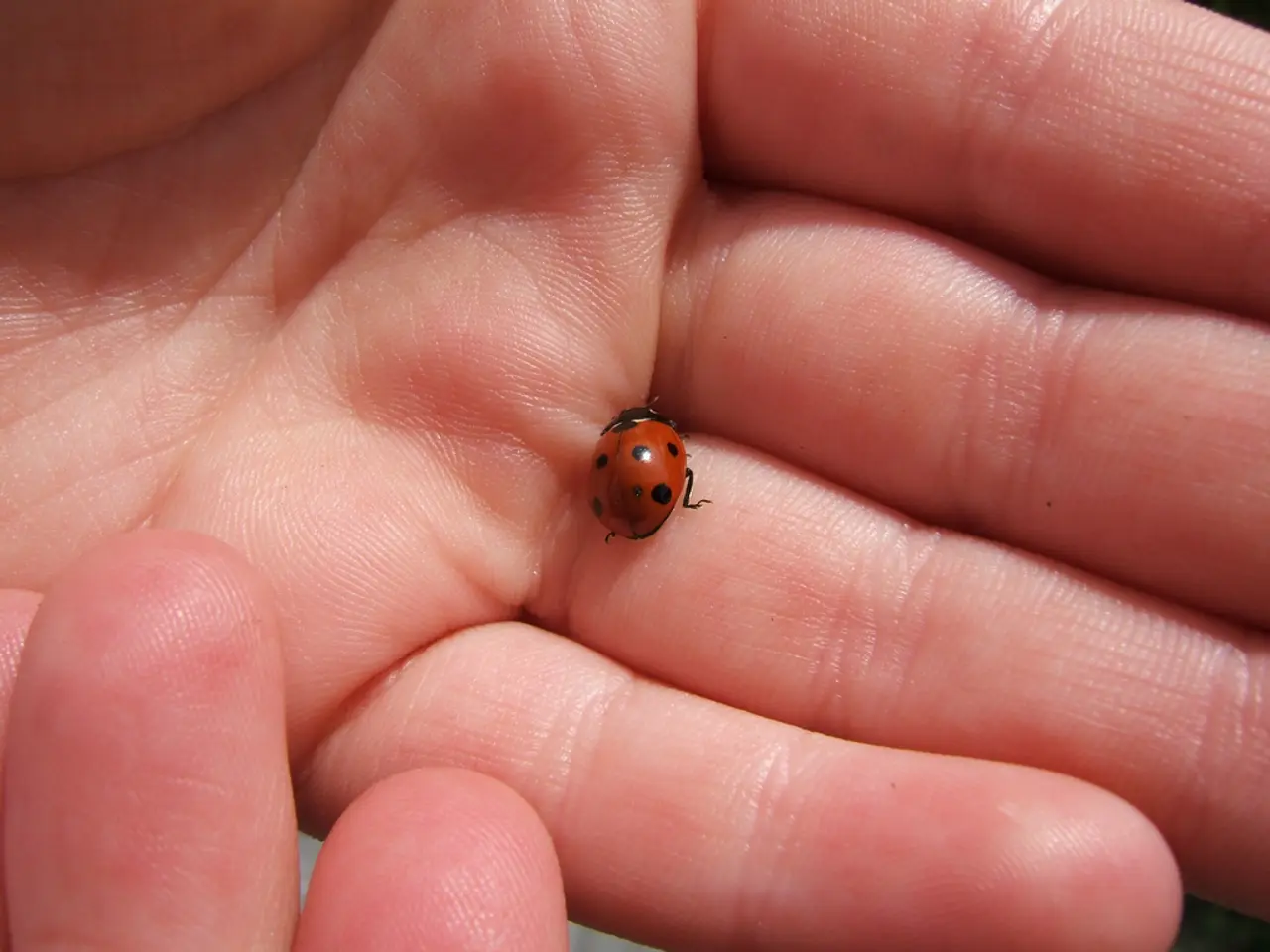Cold hands in individuals with anxiety: causes and treatment strategies
In the realm of clinical psychology, anxiety often manifests in unexpected ways, one of which is the experience of cold hands. This phenomenon is rooted in the body's stress response, which prioritizes blood flow to vital organs, causing peripheral blood vessels to constrict and reduce blood circulation to the hands.
Understanding the Causes
Anxiety triggers the release of stress hormones like adrenaline, leading to the constriction of peripheral blood vessels. This redirection of blood flow can exacerbate existing circulation problems, making hands feel colder.
Combating Cold Hands
Coping Strategies for Anxiety
- Breathing Techniques: Deep, diaphragmatic breathing can help calm the body and potentially improve blood circulation.
- Progressive Muscle Relaxation: Systematically tensing and relaxing muscle groups can reduce tension and promote overall relaxation.
- Mindfulness Meditation: Regular practice can reduce anxiety levels and improve emotional regulation.
Physical Methods to Improve Circulation
- Cold Water Therapy: Exposure to cold water can initially cause constriction but can lead to vasodilation, increasing blood flow and circulation.
- Exercise: Regular physical activity can improve circulation over time by strengthening cardiovascular health.
- Warming Techniques: Applying warm water or a warm compress to the hands can help increase blood flow and warm them up temporarily.
Lifestyle Changes
- Stress Management: Regular stress-reducing techniques can help minimize the body's stress response.
- Nutrition and Hydration: Maintaining a balanced diet and staying hydrated can support overall vascular health.
- Medical Evaluation: If cold hands persist, it may be wise to consult a healthcare provider to rule out underlying health issues.
By incorporating these strategies, individuals with anxiety can better manage cold hands and improve their overall well-being. It's important to remember that while these methods can be helpful, they are not a substitute for professional medical advice. Always consult a psychologist for a particular case.
Other symptoms such as tremors, vomiting, nausea, excessive sweating, broken breathing, skin color change, palpitations, and dry mouth can accompany the cold of the hands in cases of anxiety. The presence of other mental health disorders such as depression, bipolarity, obsessions, and chronic conflicts can influence the appearance of body symptoms associated with anxiety.
Family experiences such as child sexual abuse, verbal and/or physical abuse, the death of loved ones, and conflicts between family members can be predisposing factors for the symptom of cold hands. Seeking support from friends, family, self-help groups, or sports institutions can provide emotional support to cope with anxiety moments. Work stress can increase the presence of anxiety symptoms, including cold hands.
Writing down thoughts, behaviors, and emotions can help release nervous tension and provide a new perspective on problems related to cold hands due to anxiety. It's crucial to remember that managing anxiety and its associated symptoms is a journey, and it's essential to be patient and kind to oneself along the way.
- In the realm of clinical psychology, anxiety not only causes cold hands but also triggers other symptoms like tremors, vomiting, excessive sweating, and skin color changes.
- Mindfulness meditation, as a coping strategy for anxiety, can reduce anxiety levels and improve emotional regulation.
- Stress management, through regular stress-reducing techniques, can help minimize the body's stress response, which may lead to improved blood circulation and warmer hands.
- family experiences such as child sexual abuse, verbal and physical abuse, the death of loved ones, and conflicts between family members can be predisposing factors for symptoms like cold hands.
- Emotional support can be sought from friends, family, self-help groups, or sports institutions to cope with anxiety moments and manage symptoms like cold hands.




